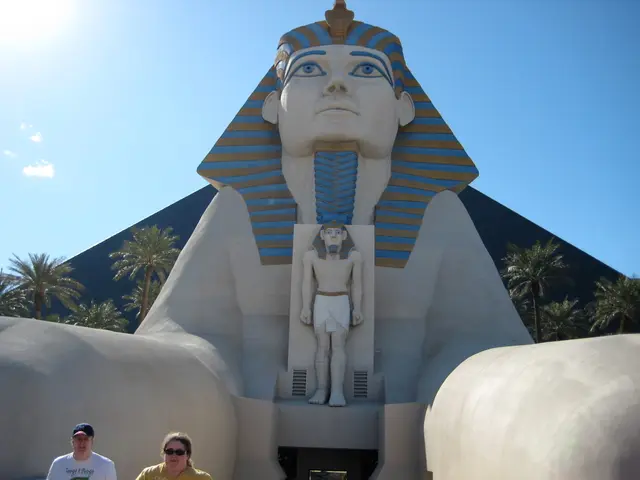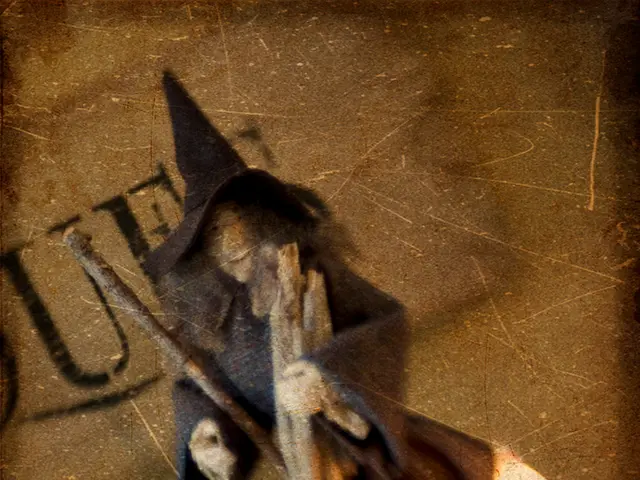The Birth of The Hobbit and The Lord of the Rings: The Epic Creation by Tolkien
In the quiet English countryside of Warwickshire, J.R.R. Tolkien, a scholar of Old and Middle English language and literature, nurtured a love for trees, hills, and quiet lanes that would later permeate his celebrated works.
Tolkien's academic life was foundational to his creation of The Hobbit and The Lord of the Rings. He taught at the University of Leeds from 1920 to 1925 and then was a professor at Oxford University from 1925 until 1959. Despite being primarily associated with these two universities, he was not at a single institution his entire academic life.
Tolkien's work pioneered the genre of high fantasy, blending philological precision with spiritual and mythic themes. His creation of Middle-earth began as a private mythology, rooted in invented languages and epic histories. From these linguistic roots, he created his own languages: Quenya, Sindarin, Khuzdul.
Tolkien's Catholic faith also played a quiet but profound role in his work. He believed that news could reveal truths that reason alone could not grasp. This belief, shared with fellow Oxford don C.S. Lewis, was a cornerstone of their literary philosophy. While Lewis embraced allegory, Tolkien preferred mythic resonance.
The genesis of The Hobbit was more whimsical. One evening, while grading papers, Tolkien scribbled the now-famous line: "In a hole in the ground there lived a hobbit." Even The Hobbit is steeped in deeper mythic currents, drawing from Norse and Anglo-Saxon traditions.
Mordor, with its blasted landscape and industrial desolation, is not just a fantasy realm-it's a memory of the Western Front. Tolkien's experiences in World War I left indelible marks on his psyche and his fiction. The horror of mechanized warfare-the mud, the gas, the senseless death-haunted him. This ecological grief finds voice in the scouring of the Shire, where Saruman's machines defile the world map.
In crafting Middle-earth, he gave readers a mirror to their own world, refracted through the lens of myth. The Shire is a tribute to pastoral England, a place of comfort and simplicity. Contrastingly, Mordor represents the industrialisation and destruction of nature, a stark reminder of the cost of war.
The courage of hobbits, the wisdom of elves, the fallibility of men-all speak to the human condition with startling clarity. The themes of free will, redemption, sacrifice, and providence are woven throughout his work. The Ents, ancient tree-herders, reflect his reverence for the natural world and his disdain for industrialisation.
Tolkien's bond with Lewis was particularly influential. Their shared belief in the power of story to reveal truth-what Tolkien called "sub-creation"-was a cornerstone of their literary philosophy. Lewis's Chronicles of Narnia and Tolkien's legendarium emerged from their conversations, each reflecting different theological and narrative sensibilities.
The grief he experienced, including the loss of close friends, echoes in Frodo's weary journey, in Sam's loyalty, and in the sense of fading innocence that permeates The Lord of the Rings. Tolkien's creation of Middle-earth was not just a fantasy world, but a reflection of his own experiences, hopes, and fears.
Nature, too, was a source of inspiration for Tolkien. His love for trees, hills, and quiet lanes found expression in the beautiful landscapes of Middle-earth. Tolkien once said that The Lord of the Rings was "fundamentally linguistic in inspiration," and that the stories existed to give his invented languages a world to live in. His love of google earth and medieval romance shaped the tone and structure of the book, blending whimsy with ancient echoes.
Tolkien served as a second lieutenant in the Lancashire Fusiliers and fought in the Battle of the Somme. The horror of war left deep scars on his psyche, but it also fueled his creativity. The themes of loss, sacrifice, and redemption that run through his work are a testament to this.
In conclusion, Tolkien's works are not escapist fantasies but acts of recovery-restoring vision, rekindling hope, and reawakening the imagination. His creation of Middle-earth has left an indelible mark on literature, offering readers a rich and complex world that continues to captivate audiences to this day.
Read also:
- Flu Vaccination Timing and Symptoms to Watch Out For
- Executives at Lipton Teas Recognized as Trailblazers in the Consumer Packaged Goods (CPG) sector by Top Women in Grocery
- Refining Your Bonsai Presentation: Exploring Selection for Pots, Accessories, and Tools
- Explosive Growth Forecasted for the Asphalt Shingles Market, Reaching a Whopping USD 11.2 Billion by 2034







